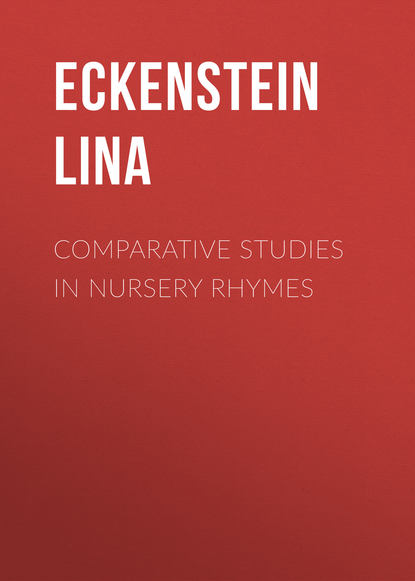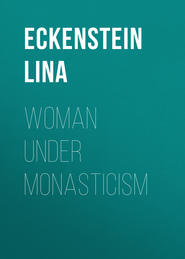По всем вопросам обращайтесь на: info@litportal.ru
(©) 2003-2024.
✖
Comparative Studies in Nursery Rhymes
Настройки чтения
Размер шрифта
Высота строк
Поля
(Lancashire, 1892, p. 326.)
6. Ladybird, ladybird, fly away home,
Your house is on fire, your children at home.
They're all burnt but one, and that's little Ann,
And she has crept under the warming pan.
(Rusher's Series.)
7. Ladycow, ladycow, fly thy way home,
Thy house is on fire, thy children all gone;
All but one, that ligs under a stone,
Ply thee home, ladycow, ere it be gone.
(1842, p. 204.)
8. Ladycow, Ladycow, fly away home,
Thy house is on fire, thy children all gone;
All but one, and he is Tum,
And he lies under the grindelstone.
(Shropshire, 1892, p. 327.)
9. Dowdy cow, dowdy cow, ride away hame,
Thy house is burnt, and thy bairns are ta'en;
And if thou means to save thy bairns,
Take thy wings and fly away.
(N. Riding, Yorks., 1892, p. 327.)
10. Lady, lady landers, fly away to Flanders.
(Chambers, 1842, p. 43.)
11. Fly, ladybird, fly!
North, south, east, or west,
Fly to the pretty girl that I love best.
(1849, p. 5.)
12. King, king Golloway, up your wings and fly away,
Over land and over sea; tell me where my love can be.
(Kincardineshire, 1870, p. 201.)
13. Ladycow, ladycow, fly from my hand,
Tell me where my true love stands,
Up hill and down hill and by the sea-sand.
(1892, p. 119.)
14. Bishop, Bishop, Barnabee, tell me when my wedding will be.
If it be to-morrow day,
Ope your wings and fly away.
(Sussex, 1892, p. 119.)
15. Bishop, bishop, barnabee, tell me when my wedding will be.
Fly to the east, fly to the west,
Fly to them that I love best.
(N. & Q., I., p. 132.)
16. Burnie bee, burnie bee, say when will your wedding be.
If it be to-morrow day,
Take your wings and fly away.
(Norfolk, 1849, p. 3.)
17. Bless you, bless you, bonnie bee, say when will your wedding be.
If it be to-morrow day,
Take your wings and fly away.
(M., p. 253, foot-note.)
18. God A'mighty's colly cow, fly up to heaven;
Carry up ten pound, and bring down eleven.
(Hampshire, 1892, p. 327.)
19. This ladyfly I take from the grass,
Whose spotted back might scarlet red surpass.
Fly ladybird, north, south, or east or west,
Fly where the man is found that I love best.
(M., p. 417, citing Brand.)
The comparison of these rhymes with their foreign parallels, of which a number were collected by Mannhardt, shows that a rhyme current in Saxony is very close to ours: —
Himmelsküchlein, flieg aus!
Dein Haus brennt,
Deine kinder weinen alle miteinander.
(M., p. 349.)
"Heaven's little chicken, fly away; thy house is on fire, thy children are all crying."
Mannhardt was of opinion that the ladybird rhyme originated as a charm intended to speed the sun across the dangers of sunset, that is, the "house on fire" or welkin of the West, which is set aglow at sundown. Throughout the East a prayer is still uttered to the setting sun in order to ensure its safe return on the morrow.
The ladybird is known by a variety of names both in England and abroad. Among ourselves it is identified as a cow, a bird, or a bee, while the lady of our rhymes reappears as Mary in the German expression Marienkäfer. In Sweden the ladybird is addressed as Jungfru Marias Nyckelpiga, "the Lady Mary's keybearer," and this expression is explained by the story that the Virgin lost the keys of heaven, and that all the animals helped her to look for them. They were found by the ladybird, to whose care they are now entrusted. The keys of heaven have been interpreted as the lightning which opened the floodgates of heaven. For the mother divinities were credited with making the weather, with giving rain, and with washing. This latter association lingers in the Scottish ladybird rhyme, in which the ladybird is addressed as landers, i.e. laundress (M., p. 250, foot-note).
In Potsdam they sing: —
Marienwörmken flïg furt,
Flïg furt nach Engelland!
Engelland ist zugeschlossen,
Schlüssel davon abgebrochen.
(M., p. 347.)
"Insect of Mary, fly away, fly away to Engelland. Engelland is locked, its key is broken."
The rhyme thus combines the idea of the keys of heaven with Engelland, the home of the unborn spirits, and with Mary, to whom the insect is dedicated.






